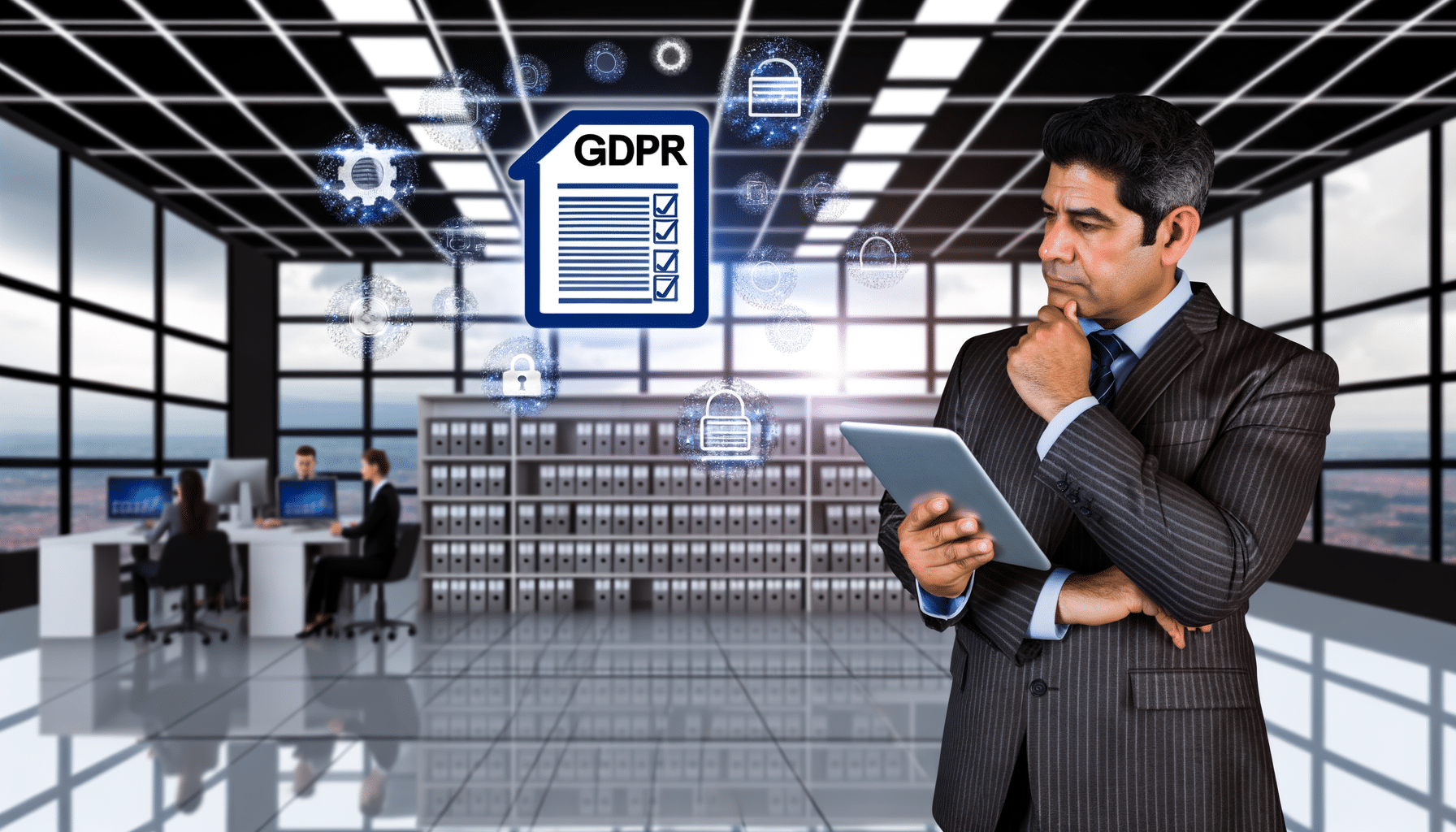- Data Regulation
- August 22, 2024
The Impact of GDPR on Legal Record Keeping Practices

Introduction
The landscape of record keeping in the legal domain has undergone transformative changes, primarily driven by the introduction and enforcement of the General Data Protection Regulation (GDPR). As a founder of RecordsKeeper.AI, I am keenly aware of how pivotal it is for legal professionals to adapt to these changes. GDPR has fundamentally redefined how personal data should be handled, placing a significant focus on data protection, security, and transparency. Today, I am excited to share insights into how GDPR influences legal record keeping practices, providing you with a pathway to navigate these complexities effectively.
Understanding GDPR and Its Relevance
The GDPR, which came into force in May 2018, establishes a strong framework for data protection across the European Union. It applies not only to entities within the EU but also to those handling personal data of EU residents. For the legal sector, this means crafting meticulous strategies that prioritize the confidentiality and security of personal data in compliance with GDPR standards.
GDPR’s sweeping reach has affected every aspect of record keeping. It compels legal departments to scrutinize their data handling processes and ensure that any personal information collected, stored, or shared is done so with expressed consent and robust security measures. The impact of non-compliance is significant, hence it’s crucial to embed GDPR principles into everyday record keeping practices.
The Transformation of Legal Record Keeping Practices
Under the influence of GDPR, traditional legal record keeping practices have seen profound changes. Here are some of the most impactful transformations:
Data Minimization and Purpose Limitation
One of the fundamental principles of GDPR is data minimization—the practice of collecting only what is necessary for a specific purpose. For legal practitioners, this translates into a thorough evaluation of the purpose of data collection and a commitment to keep only what is necessary. This not only reduces liability but also enhances data management efficacy.
Enhanced Security and Confidentiality
GDPR emphasizes the security of personal data by mandating the implementation of appropriate technical and organizational measures. Legal departments are now expected to employ robust encryption techniques, access controls, and secure data storage solutions to protect client information from breaches or unauthorized access.
Accountability and Compliance Mechanisms
The regulation necessitates demonstrable compliance through detailed documentation and accountability measures. Legal record keepers have to establish clear policies, conduct regular audits, and generate comprehensive reports that prove GDPR compliance. Utilizing AI-powered platforms like RecordsKeeper.AI can simplify these processes by automating compliance workflows and generating audit-ready reports.
Addressing Common Challenges
While GDPR compliance is mandatory, it may pose challenges, especially for those accustomed to traditional record keeping methods. Here’s how we can address these challenges:
AI and blockchain technologies can play a pivotal role in achieving GDPR compliance. By automating data classification and retrieval, these technologies reduce human error and ensure consistent compliance with data protection mandates.
Keeping abreast of GDPR updates and training legal staff on compliance initiatives fosters a culture of privacy and enhances competence in handling sensitive data.
Regular data audits and reviews help identify vulnerabilities and ensure ongoing compliance, mitigating the risk of data breaches.
The Strategic Advantage of Compliance
Aligning legal record keeping with GDPR requirements not only mitigates legal risks but also positions your practice as a leader in data privacy and security. Compliance demonstrates a commitment to client confidentiality, strengthening trust and credibility in an increasingly privacy-conscious environment.
Moreover, leveraging platforms like RecordsKeeper.AI offers a strategic advantage beyond compliance. The automation of categorization and retrieval, secure data rooms, and real-time activity tracking transform record management from a cumbersome obligation into a strategic asset. This not only enhances operational efficiency but also allows legal professionals to focus on delivering exceptional client services.
Conclusion
In navigating the complexities of GDPR, legal practitioners have the opportunity to redefine their record keeping practices, aligning with both regulatory demands and client expectations. As GDPR continues to shape the landscape of legal record management, embracing innovative solutions such as those offered by RecordsKeeper.AI equips you to turn challenges into advantages.
I invite you to explore more insights into the evolving world of data regulation, and how RecordsKeeper.AI can serve as a crucial partner on your journey toward ultimate compliance and efficiency. Join me in this endeavor to stay ahead in the legal sector by prioritizing data protection and setting new standards in record management. Keep following for more insights and tools to empower your practice with the strength of innovation and compliance.
Toshendra Sharma is the visionary founder and CEO of RecordsKeeper.AI, spearheading the fusion of AI and blockchain to redefine enterprise record management. With a groundbreaking approach to solving complex business challenges, Toshendra combines deep expertise in blockchain and artificial intelligence with an acute understanding of enterprise compliance and security needs.
Archives
- December 2024
- November 2024
- October 2024
- September 2024
- August 2024
- July 2024
- June 2024
- May 2024
- April 2024
- March 2024
- February 2024
- January 2024
- December 2023
- November 2023
- October 2023
- September 2023
- August 2023
- July 2023
- June 2023
- May 2023
- April 2023
- March 2023
- February 2023
- January 2023
- December 2022
- November 2022
- October 2022
- September 2022
- March 2019
Want to get more content like this?
Signup to directly get this type of content to your inbox!!
Latest Post
Organizing External Auditor Access
- December 22, 2024
Document Control in Manufacturing Plants
- December 21, 2024
Handling Rush Financial Report Requests
- December 20, 2024
Managing Record Access After Staff Changes
- December 19, 2024





